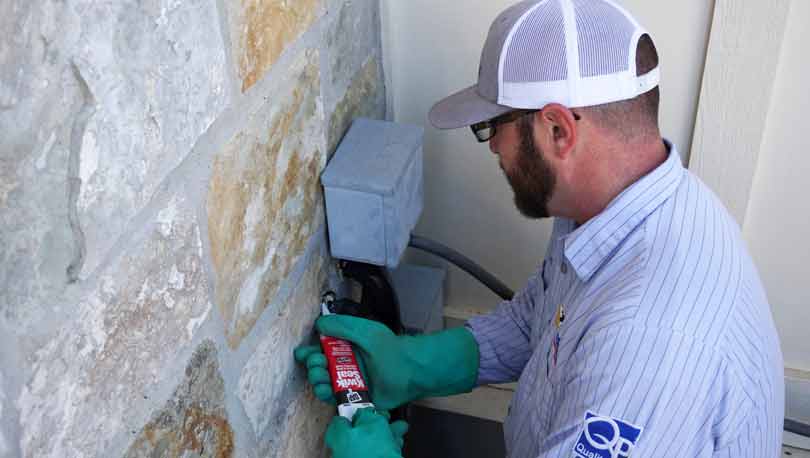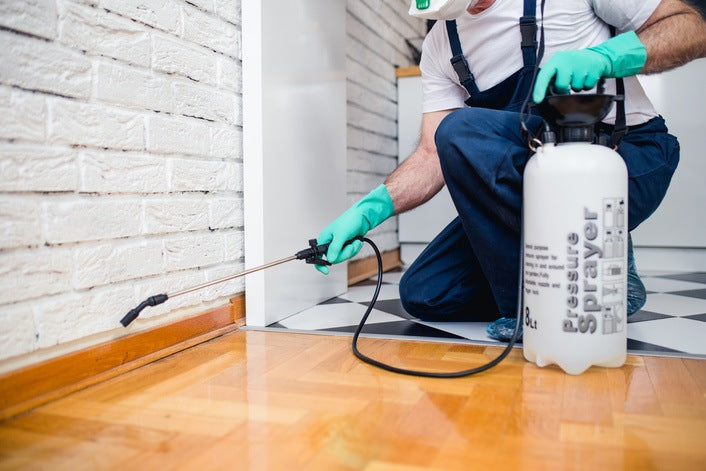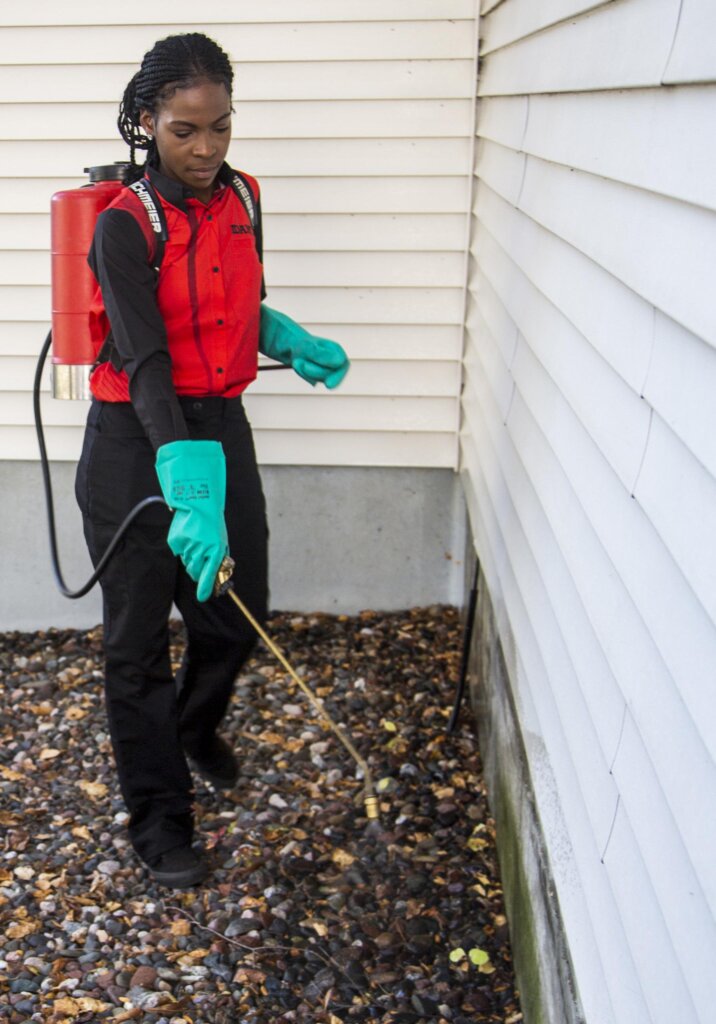Guard Your Property from Intruders: Orem Pest Control That Works
Wiki Article
Finding the Different Types of Pest Control Techniques and Their Applications
Pest control is a crucial facet of maintaining a healthy and balanced and risk-free setting, whether it be in property, business, or farming settings. From chemical techniques that target specific bugs to organic techniques that harness all-natural killers, the realm of insect control is varied and vast.Chemical Pest Control Methods
Chemical pest control strategies are commonly utilized in agriculture and insect monitoring to successfully eradicate or manage pest invasions. These methods entail making use of chemical compounds, such as chemicals, herbicides, and insecticides, to eliminate or minimize pest populations that position a danger to plants, animals, or human wellness. Chemicals, for instance, target particular bugs like rats, pests, or weeds, disrupting their life process or causing direct injury upon contact. Herbicides are particularly developed to control undesirable vegetation that completes with crops for sources and nutrients. Insecticides, on the other hand, are used to combat insect parasites that can damage plants and transfer conditions.While chemical insect control strategies can be very reliable in taking care of bug populations, they likewise increase worries regarding prospective environmental and health and wellness risks. It is important to comply with safety and security guidelines, utilize integrated pest management techniques, and consider different techniques to reduce the negative influences of chemical pest control methods.
Biological Bug Control Approaches
 Biological bug control methods utilize living microorganisms to take care of and minimize insect populations in a ecologically pleasant and lasting way. One usual approach is the release of ladybugs to deal with aphids in yards, as ladybugs are all-natural killers of these devastating insects.
Biological bug control methods utilize living microorganisms to take care of and minimize insect populations in a ecologically pleasant and lasting way. One usual approach is the release of ladybugs to deal with aphids in yards, as ladybugs are all-natural killers of these devastating insects.
Organic bug control approaches offer several advantages over chemical approaches. They are generally safer for the setting, as they do not leave hazardous residues or contribute to pollution. Furthermore, these approaches are frequently much more targeted, influencing only the parasite varieties without hurting helpful pests or other organisms. Biological control can be a long-term service, as the presented organisms can develop sustainable populaces and give recurring bug monitoring. In general, biological insect control methods present a natural and effective choice to typical chemical therapies, advertising a balanced ecological community and much healthier settings.
Physical Insect Control Approaches
Utilizing physical methods to regulate pests involves the use of non-chemical or mechanical methods to mitigate and manage insect problems efficiently. These methods count on physical obstacles, traps, and other strategies to hinder and eliminate pests without the usage of dangerous chemicals. One common physical pest control technique is the installation of nets, displays, or fences to obstruct insects from entering specific areas. This approach is particularly efficient in maintaining out bugs and little animals from buildings or gardens.An additional physical technique is using catches, such as breeze catches for rats or pheromone traps for pests. These traps purpose to record parasites without positioning any type of risk to human beings or the setting. In addition, physical control approaches can consist of strategies like handpicking parasites off plants, making use of vacuum gadgets to remove pests, or employing warm treatments to eradicate bed pests and various other pests in plagued areas.
Integrated Insect Management Techniques
Carrying out an alternative technique to pest administration, Integrated Insect Management (IPM) techniques aim to integrate different efficient methods to stop and regulate pest infestations while lessening ecological influence and ensuring sustainable pest control methods. IPM entails the assimilation of numerous control techniques such as biological control, cultural methods, mechanical control, and the cautious use pesticides.

Furthermore, IPM stresses the significance look at this now of monitoring and examining pest populations to establish one of the most appropriate control strategies. By implementing IPM approaches, bug control initiatives end up being more targeted and reliable, decreasing the threats related to excessive pesticide usage and promoting lasting pest administration remedies.
Natural and Organic Bug Control Options

One prominent organic pest control technique is neem oil, originated from the seeds of the neem tree, which works as a repellent and interferes with the development and development of pests. Diatomaceous planet, an all-natural silica-based powder, is one more reliable natural pest control alternative that functions by dehydrating insects upon get in touch with. By integrating natural and natural insect control choices right into parasite management techniques, people can efficiently control bugs while minimizing harm to the environment and Visit Your URL advertising sustainable methods.
Verdict
To conclude, numerous parasite control methods such as chemical, organic, physical, integrated parasite administration, and natural options are available for efficiently taking care of parasite infestations. Each technique has its own benefits and applications depending on the sort of parasite and the atmosphere. By comprehending the various kinds of parasite control strategies and their applications, people can make enlightened decisions on one of the most ideal strategy to control parasites and secure their building.Chemical parasite control strategies are extensively made use of in farming and parasite monitoring to effectively eradicate or control pest infestations - Orem Pest Control. Natural bug control techniques entail utilizing organic control agents, such as bloodsuckers or killers, to handle insect populations. By incorporating natural and all-natural bug control alternatives right into parasite administration strategies, individuals can properly regulate insects while decreasing damage to the environment and promoting lasting methods
In final thought, various parasite control techniques such as chemical, organic, physical, incorporated bug administration, and natural options are readily available for efficiently handling parasite invasions. By understanding the different kinds of insect control methods and their applications, people can make informed choices on the most ideal approach to regulate parasites and secure their home.
Report this wiki page